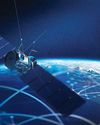
Powered by a significant drop in smartphone prices and relatively cheaper mobile data tariffs, the digital revolution is redefining how Indians work, live, and entertain themselves. The outbreak of the COVID-19 pandemic further accelerated the adoption of digital infrastructure, hastening the shift to online platforms.
During the last few years, the Government of India has introduced several initiatives, including Digital India, to promote a digital way of life. The government is also investing heavily in building various digital platform infrastructures (DPIs), such as Aadhaar and the Unified Payments Interface (UPI), to bolster the digital economy and drive socio-economic development.
Also, the growing adoption of Artificial Intelligence (AI) tools by businesses and individuals is set to propel the country’s digital economy. The Indian AI market reached USD 4.1 billion in 2023, according to data shared by Statista. With a compound annual growth rate (CAGR) of 25–35%, India’s AI market is projected to reach approximately USD 17 billion by 2027, as per a report by the National Association of Software and Services Companies (NASSCOM) and the Boston Consulting Group (BCG).
This surge in digitisation, alongside evolving consumer behaviour, is driving unprecedented data consumption, necessitating a paradigm shift in the country’s communication networks. The increasing popularity of video streaming, online gaming, e-learning, and remote work has caused a massive rise in bandwidth demand, which the traditional network infrastructure cannot adequately support.
This story is from the October 2024 edition of Voice and Data.
Start your 7-day Magzter GOLD free trial to access thousands of curated premium stories, and 9,000+ magazines and newspapers.
Already a subscriber ? Sign In
This story is from the October 2024 edition of Voice and Data.
Start your 7-day Magzter GOLD free trial to access thousands of curated premium stories, and 9,000+ magazines and newspapers.
Already a subscriber? Sign In

Cloud endoscopy breakthrough for real-time remote diagnostics
NTT Corporation and Olympus Corporation have demonstrated the feasibility of real-time remote diagnosis and treatment using the world's first endoscopy system powered by IOWN All Photonics Network (APN) technology. The breakthrough experiment successfully processed endoscopic videos on a server located 150 km away, overcoming latency issues and enabling seamless diagnostics.

Rise of the homegrown telecom infrastructure
Telecom infrastructure, once led by US and European designs and made in China, iS Now increasingly designed and manufactured in India, marking a pivotal shift

Balancing innovation and regulation for a connected future
Crafting agile governance ensures equitable, sustainable growth, blending innovation with societal protection in a hyper-connected digital age

Driving transformative shifts towards digital leadership
India's telecom sector, driven by 5G, bold policies, and cross-sector collaborations, is paving the way to global digital infrastructure leadership

Scaling AI in data centres for the next big leap
GPU-optimised data centres are vital for advancing India’s Al ambitions, enabling it to meet growing computational demands and maintaining global competitiveness

Bridging gaps with AI's transformative communication wave
AI-driven real-time communication reshapes industries, enhancing connections, operational efficiency, and immersive experiences in a digital-first world

Weaving the fabric of CDN efficiency
Local peering transforms CDNs by cutting latency, boosting reliability, and ensuring seamless, high-speed delivery for modern digital experiences

From orbit to opportunity: Redefining connectivity
India's satcom sector is set to revolutionise connectivity through hybrid networks, bridging the digital divide and driving innovative technologies for growth

Orchestrating telecom's smart future
AI and automation can revolutionise telecom networks, crafting intelligent, selfoptimising systems to meet future demands and deliver seamless connectivity

Unlocking the true potential of IoT
Specialised silicon and 5G are set to redefine loT's future, driving AloT innovations that deliver real-time intelligence, security, and seamless connectivity